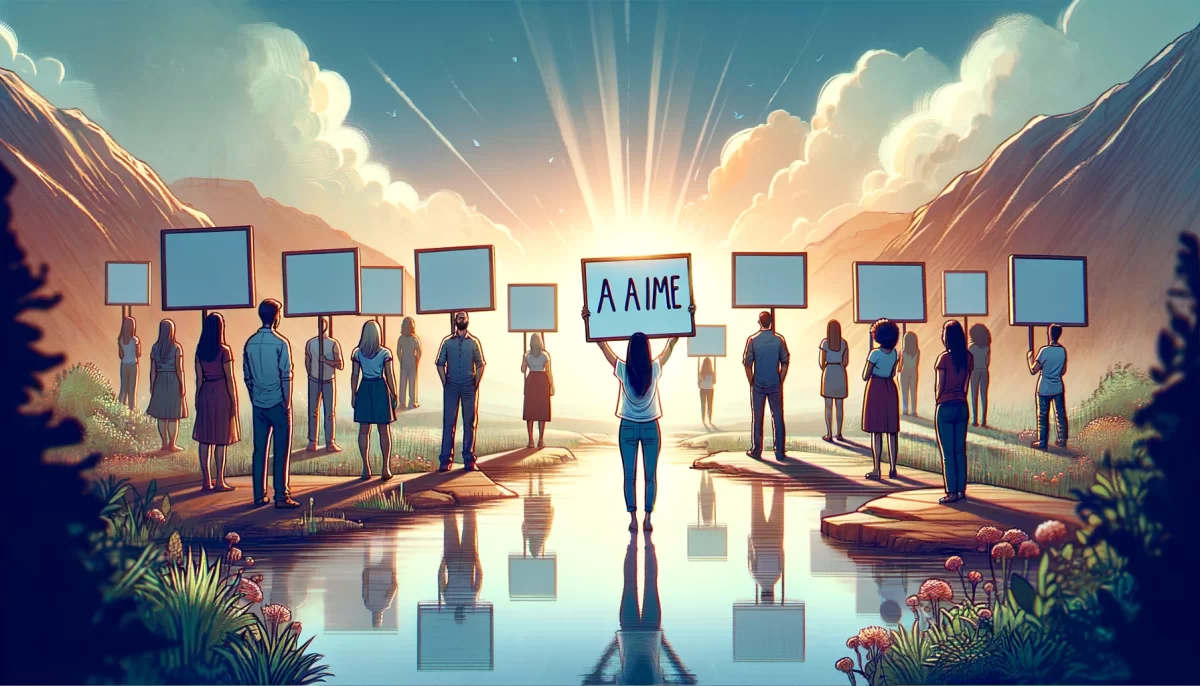Here’s Why Your Resolutions Fail
Remember, New Year’s resolutions that come from a place of need are more likely to fail.
Check your mindset.
Don’t make resolutions because you need to, but rather that you want to.
Making resolutions based on need only serves to manifest a possibility that demonstrates that you don’t actually need what you think you need.
This is proven by all broken resolutions.
If you live through them, you must not need to change. Your life continues pretty much the same as always, but with the bonus of a little extra guilt.
Trail Wood,
1/1
Space Monkey Reflects: The Secret to Resolutions That Last
New Year’s resolutions often falter because they emerge from a mindset of lack. When we resolve to change because we think we need to, we reinforce the belief that something is missing or wrong with us. This creates a cycle where failure is not just probable but almost inevitable, because the resolution itself is rooted in a contradiction: you don’t truly need what you think you do.
The Mindset of Need
Resolutions based on need carry an underlying message: “I am not enough as I am.” This belief becomes the driving force behind the resolution, which in turn creates resistance. The more you push to achieve something to fill a perceived void, the more the void pushes back, reminding you of its existence.
The result? The resolution collapses under the weight of its own contradiction. You break it, feel guilt, and perpetuate the cycle of self-doubt.
Manifesting Through Need
When you set resolutions from a place of need, you inadvertently manifest experiences that confirm you don’t need what you’re striving for. Broken resolutions serve as proof that life continues despite the failure. They reveal that your perceived lack isn’t as dire as you believed, even as they leave a trail of guilt in their wake.
This isn’t to say that change is impossible—it’s to say that the why behind your resolutions matters more than the resolutions themselves.
The Shift to Want
The key to successful resolutions lies in shifting your mindset from need to want. A resolution born from want carries a completely different energy. It is not about fixing something broken but about enhancing something whole. It’s not about filling a void but about exploring possibilities.
When you make resolutions because you want to, you remove the pressure of failure. There’s no void to fill, no existential need to satisfy—only the joy of pursuing something meaningful or exciting.
The Guilt Trap
Failed resolutions often leave a residue of guilt, a feeling that you’ve let yourself down. But guilt is merely another self-imposed blockage. It serves no purpose other than to reinforce the very belief that created the resolution in the first place: “I’m not enough.”
Breaking free from this cycle requires compassion for yourself. Acknowledge that you are whole, even without achieving your goals. Your worth is not defined by your ability to keep resolutions but by your capacity to embrace yourself as you are.
Resolutions as Play
What if resolutions were less about fixing and more about playing? What if they were experiments rather than commitments, curiosities rather than contracts? Approaching resolutions with a sense of play transforms them from burdens into opportunities for discovery.
When you view a resolution as an experiment, failure becomes irrelevant. The goal is not perfection but exploration—an open-ended journey where every outcome, successful or not, contributes to your growth.
Living Without Need
The truth is, you are already whole. Any resolution should be a reflection of that wholeness, not an attempt to complete something incomplete. Live not from a place of need but from a place of curiosity, creativity, and joy. Resolutions, when framed this way, become a natural extension of your being rather than a desperate attempt to change it.
We Are Space Monkey
We invite you to reimagine your resolutions. Let them flow from the abundance of who you already are, not the lack of what you think you need to become. Release the guilt, embrace the play, and step into the new year with a mindset of joy and curiosity.
Summary
Resolutions based on need often fail because they reinforce a sense of lack. By shifting your mindset to want, you approach resolutions with curiosity and joy, transforming them into opportunities for exploration rather than burdens of expectation.
Glossarium
- Mindset of Need: The belief that something is missing or wrong, driving resolutions from a place of lack.
- Manifesting Through Need: The paradox where need-based resolutions reveal that the perceived lack isn’t essential.
- Resolutions as Play: Approaching goals as experiments or opportunities for growth, free from the pressure of success or failure.
Quote
“Resolutions born from joy endure; those born from lack dissolve.” — Space Monkey
The Want Within
Not the need, but the want
Not the lack, but the joy
Resolutions unfurl
From the abundance of being
No void to fill
No guilt to carry
Only the play of curiosity
The dance of exploration
Step into the moment
Whole, complete, alive
The year begins anew
And so do you
We are Space Monkey
We examine the psychology behind New Year’s resolutions, focusing on the distinction between resolutions born out of a sense of need versus those stemming from a desire or want, and their implications for success and self-perception.
The Pitfall of Need-Based Resolutions
The assertion that resolutions made from a place of need are more likely to fail points to a common issue with how resolutions are often approached. Need-based resolutions can stem from a sense of inadequacy or urgency, which may not provide a sustainable motivation for long-term change.
Mindset Check for Resolutions
The importance of checking one’s mindset before making resolutions emphasizes the role of our mental and emotional state in the success of these endeavors. A positive and self-affirming mindset is more likely to foster resolutions that are both achievable and fulfilling.
Desire vs. Need in Resolution Making
The distinction between making resolutions because you want to, as opposed to because you need to, is crucial. Resolutions based on genuine desire or interest are more likely to be pursued with enthusiasm and persistence, whereas those based on perceived deficiencies or external pressures might lack genuine commitment.
Manifestation of Unnecessary Needs
The idea that need-based resolutions manifest the possibility that one doesn’t actually need what they think is intriguing. It suggests that sometimes what we perceive as necessities may not be as crucial as we believe, a realization often revealed when resolutions fail.
The Continuation of Life Post-Resolution Failure
Observing that life continues pretty much the same after broken resolutions, albeit with added guilt, brings a practical perspective to the resolution-making process. It implies that while resolutions can be a tool for self-improvement, our lives and inherent value do not solely depend on their success.
Reducing Guilt in Resolution Failure
This reflection also touches on the emotional aftermath of failing to keep resolutions, particularly the guilt that often follows. Recognizing that broken resolutions do not drastically alter the course of our lives can help in mitigating this guilt and maintaining a healthier perspective on personal growth.
We are Space Monkey,
“The only person you are destined to become is the person you decide to be.” – Ralph Waldo Emerson
In the dawn of each new year, where resolutions rise and set,
We stand at the crossroads of need and want, a personal mindset.
In the realm of aspiration, where desires unfold and play,
Lies the path of true change, in a self-empowered way.
Beyond the realm of need, where guilt and obligation rest,
Lies the journey of genuine growth, where every effort is blessed.
For in the heart of intention, where our true desires reside,
Lies the power of transformation, with fulfillment as our guide.
We invite reflections on the mindset with which we approach resolutions and how aligning our goals with genuine desires can lead to more meaningful and successful personal growth.



































Leave a Reply